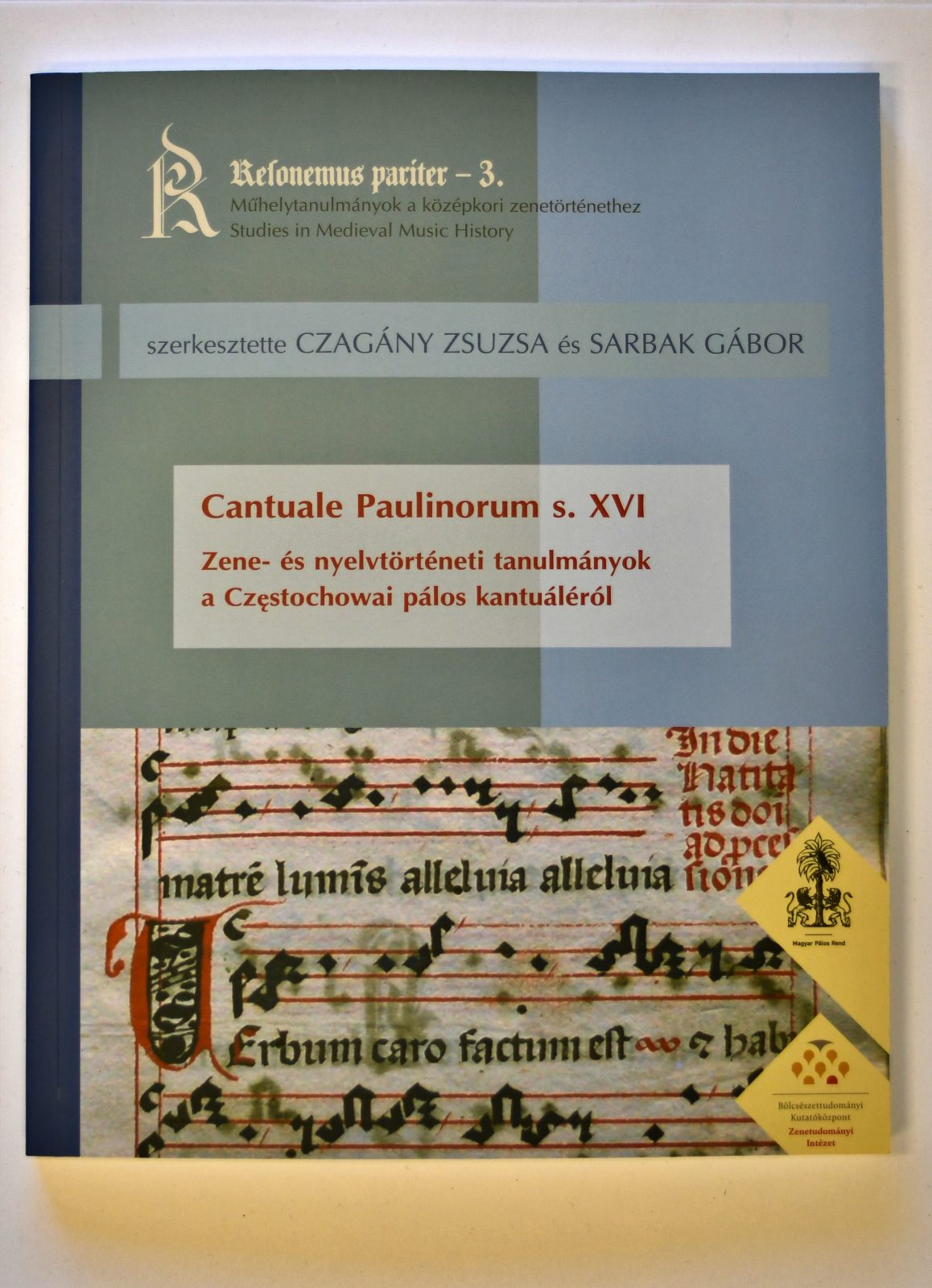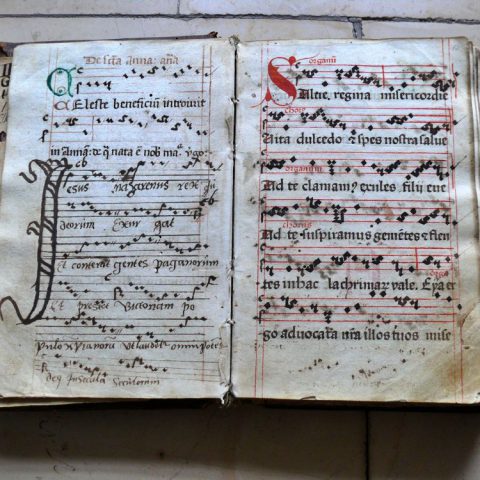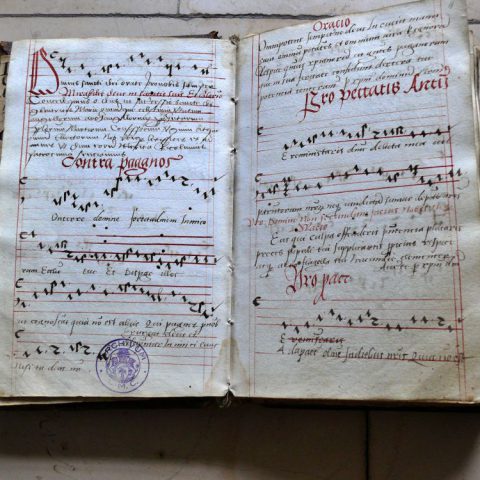The volume Cantuale Paulinorum s. XVI – Studies on Music and Language History of the Pauline Cantuale of Częstochowa was published jointly by our research group and the Hungarian Pauline Order. Edited by Zsuzsa Czagány and Gábor Sarbak (ELKH–OSZK Fragmenta et Codices Research Group), the book contains six studies that take a close look at the content, components and special features of the Cantuale.
The 16th-century notated liturgical manuscript on paper preserved in the Library of the Pauline monastery of Częstochowa (Clarus Mons – Jasna Góra) is a source of medieval and early modern Hungarian music and language history, but it is also of interest for Polish cultural history. It was probably copied in the scriptorium of a Pauline monastery in northern Hungary in the 16th century, but was transferred to a Polish sister monastery later this century. In 1601 the new owner entered the fact of ownership in the manuscript.
The Cantuale does not belong to the ranks of the late medieval ornamental codices of magnificent display and elaborate workmanship, nor does it preserve in its content and structure the usual strict order of the earlier notated sources of Mass and Office. Its value and special attraction lie precisely in the way it is used; it contains, even if sometimes in a confused and seemingly random way, what the monastic community needed most in the given context and at the given time: practical instructions for the daily psalm-singing, processional chants for some exceptional days, a detailed and structured funeral service with chants and prayers, from the reception of the last rites of the dying to the acts of burial, hymns and suffrages arranged according to the ecclesiastical year.
The studies in the volume follow the content of the manuscript: after the complete index of the cantuale (Zsuzsa Czagány) and the overview of the musical notation (Gabriella Gilányi), separate chapters deal with the tonary (Ágnes Papp), the repertory of hymns (Gábriel Szoliva), and finally the vernacular (Hungarian) text (Lea Haader). The only non-Hungarian contributor to the volume is Jakub Kubieniec, professor at the Department of Musicology, Jagellonian University, Krakow, who reviews the Polish source environment of the cantuale, making a comparative study of the individual chants in Central Europe.



